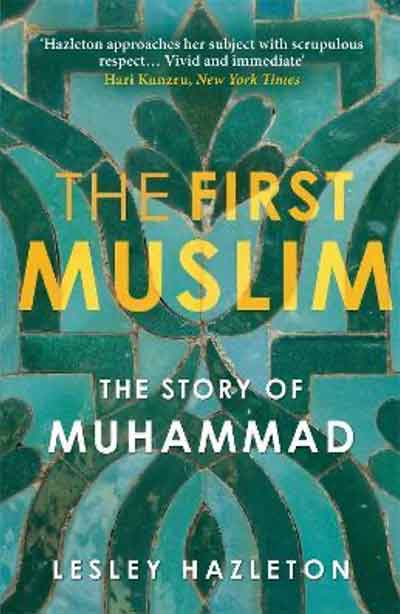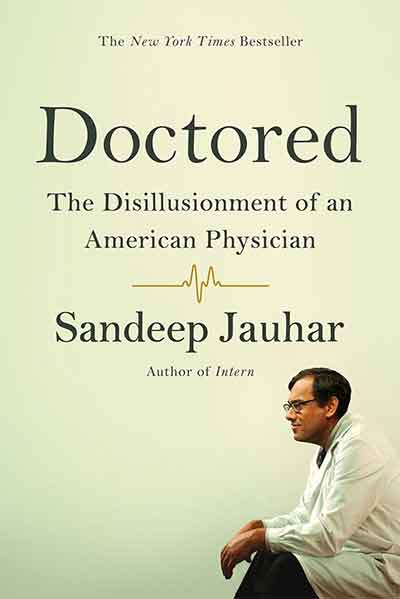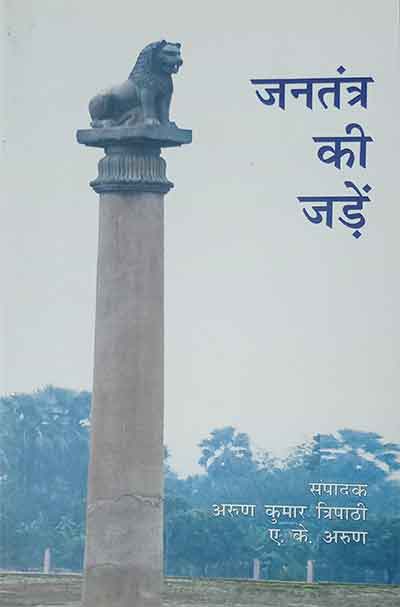A Book Review of Lesley Hazleton’s The First Muslim
My consideration of this article’s titular question was almost physically confrontational – so much so that I actually boycotted my smartphone for a week so that I could finish reading this book and organize my thoughts on it.
 To be clear, as a practicing Muslim living in the contemporary day, it was nothing new for me to read certain portrayals of my Prophet which I disagreed with. What was new however was my recognition of the secular, purportedly ‘objective’ framework upon which Hazleton (a diligent and empathetic scholar) builds her portrait of Muhammad upon, and how it stands as such awkward and unstable scaffolding for this subject. Such a recognition was like looking into a mirror and despairing at the reflection because the mode in which Hazleton writes is the same one that I’ve been trained in, given my literary education in Canada. It is an approach I wouldn’t have questioned at all had I been reading (or perhaps even writing) a biography of a religious personality I wasn’t so intimately familiar with. So, what were the problems and is it at all possible to write about religious matters and personalities from a secular perspective? The relevance of this question is pressing in our current age of holier-than-thou secularism and self-serving identity-politics.
To be clear, as a practicing Muslim living in the contemporary day, it was nothing new for me to read certain portrayals of my Prophet which I disagreed with. What was new however was my recognition of the secular, purportedly ‘objective’ framework upon which Hazleton (a diligent and empathetic scholar) builds her portrait of Muhammad upon, and how it stands as such awkward and unstable scaffolding for this subject. Such a recognition was like looking into a mirror and despairing at the reflection because the mode in which Hazleton writes is the same one that I’ve been trained in, given my literary education in Canada. It is an approach I wouldn’t have questioned at all had I been reading (or perhaps even writing) a biography of a religious personality I wasn’t so intimately familiar with. So, what were the problems and is it at all possible to write about religious matters and personalities from a secular perspective? The relevance of this question is pressing in our current age of holier-than-thou secularism and self-serving identity-politics.
As she explains herself, Hazleton’s book is meant to be a primer on the life of Muhammad for non-Muslims. It’s short and literary, and its purpose is to humanize Muhammad for those who simply have a 2D, symbolic understanding of him.
I found that Hazleton’s efforts to humanize worked to a certain extent. Her work can be broadly divided into two categories: Muhammad as a social reformer and Muhammad as a political leader. In her exposition of the former category she is able to humanize him quite well. For example, she frequently encompasses events within a psychological analysis of his early childhood and upbringing and how that sharpened his ability to analyze and mend the social injustices of Meccan society. Her writing in this section is deeply poetic and empathetic, capable of softening any heart towards Muhammad and his mission. However, the second section – Muhammad as political leader – seems almost to undo what that former section establishes. Here, he becomes stoic, faceless, an icon more than a person.
Per my understanding, there is one major reason for this, and that is her blatantly secular approach – that is, analyzing Muhammad’s political career from an ‘objective lens’ that separates governance from religion. Though she appreciates the possibility of him receiving real divine inspiration, her focus is directed towards Muhammad’s interpretations of the allegedly prophetic experiences he had. This sort of premise allows her to suggest that he levied laws and punishments as he judged best, and that the “Quranic voice” either reflected his personal feelings or defended his actions. She even argues at one point that he mandated an especially cruel punishment in defiance of the Quran – in other words, in defiance of the direct word of God Himself.
To me, this makes no sense at all. What stake would God have in defending a person’s unjust actions, even if he is His own chosen Prophet? Not only is this puzzling from a theological perspective, it is problematic for her humanistic portrait of Muhammad. The more he becomes a political leader, with his actions being portrayed as distant from the command of God, the more inscrutable he becomes as a person. Not only are there less discernible reasons for why he acted in certain ways, but the ones that are provided are overly complicated and sometimes even false, as per the Islamic tradition.
The problem with separating Muhammad from the divine guidance that led him is that it allows for the conclusion that his Prophetic status was something that he himself contrived in order to refashion the world according to his own subjective vision. Importantly, this was a man who was illiterate and had never had training as a political or military leader. The point here is that he wouldn’t have had such a huge following (one that grew exponentially even after his death) if people had caught on that he was acting from his own ego in order to increase his personal power. In fact, these same people had abandoned the leaders of Mecca in favour of Muhammad precisely because of the former’s corruption, and they had done so at great risk to themselves. They would not have decided to follow him unless firstly, he fundamentally believed in his message and its divine origin; secondly, his followers perceived this attitude of his and believed in his ability to carry out change; and, thirdly, also believed in the entity from whom Muhammad received his commands. Let’s not forget that they had equal access to the word of God as he did. By omitting the bedrock of faith upon which the story rests, the secular approach misconstrues the character, and diminishes the impact of, Muhammad and takes the further step of characterizing his followers as blind sheep, incapable of rational thought.
This is not to say that I think that Muhammad cannot be written about by a secular scholar. To give a tiny preliminary answer to the big, burning question of this small article, I think that such a writer should preserve the authentic experience of faith alongside that of normal rationality. Though Hazleton initially starts from the experience of faith itself, she eventually ends up in a territory in which Muhammad is seen to be shaping religion instead of being a person who is shaped by it himself. As I outlined above, her approach ends up creating some very blatant incongruities in her work, which only works to discredit her as a scholar. This is quite a shame because I don’t think she has pernicious intention, and even a quick glance at her bibliography shows that she researched quite extensively for this book.
So then, who should write about what and how and when? Should only people who belong to a certain community write about matters pertaining to that community? As a Muslim living in an age of rising Islamophobia my knee-jerk reaction is to (hysterically) say, yes, only Muslim scholars should publish material about Islam. But I have an equal knee-jerk reaction against closing the doors like that. All of us are well-aware of the harmful effects of the circulation of only one kind of ideology, and such gatekeeping is against the spirit of the Quran itself, which consistently prompts people to think and observe and speculate instead of blindly accepting what is convenient or trendy. However, I can’t help but be concerned that Hazleton’s work might hurt Muslims more than help them. I suppose that in some ways the answer to the question is very easy: anybody can write about whoever by whatever methodology they deem fit and publish it whenever they want. After all, Hazleton’s book exists in the world and though some people might take issue with it, they can’t (and perhaps even shouldn’t) stop others from reading it. But I’m not sure if I’m ready to recommend her work to uncanny readers. I don’t have a good answer to this question other than, maybe instead of focusing so much on what the producer of content is publishing, we should focus on critically analyzing what we are reading and increasing our awareness of the tradition and canon of the respective work.
Farheen Khan is an author and speaker based in Toronto
















































